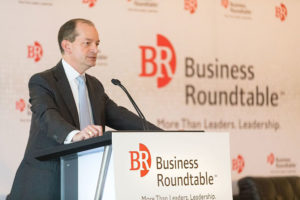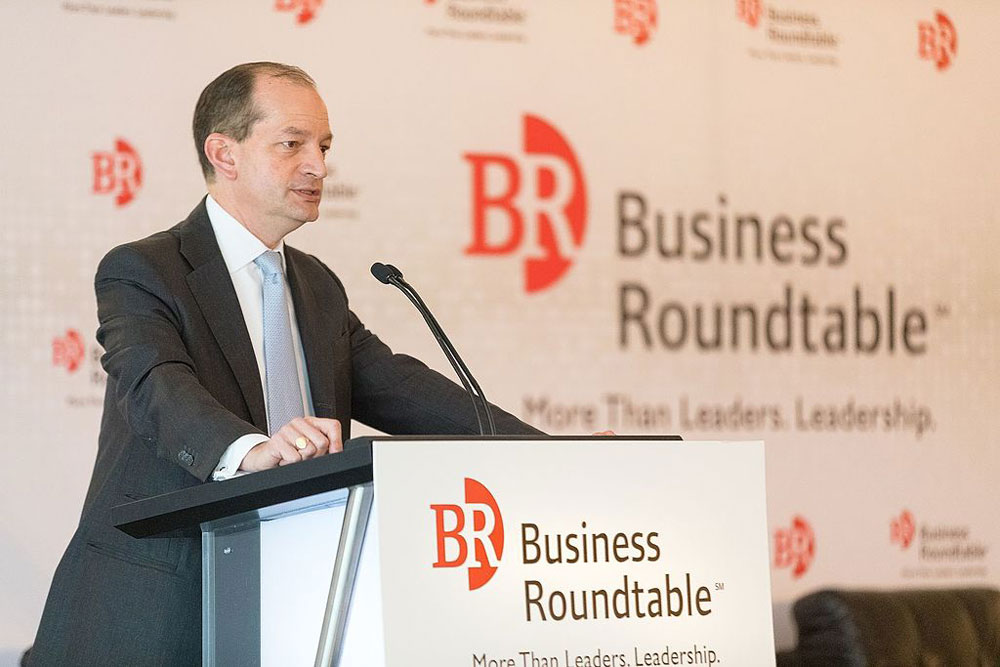October 13, 2011; Source: Business Insider | The corporate social responsibility sites might rank some corporations high, but consumers often rank them low or lower, notwithstanding their philanthropic largesse. Here is a list of the 18 “most hated” U.S. corporations and how some of them stack up on corporate social responsibility lists, and you’ll see that the companies with low CSR rankings (discernable because they don’t even make the lists of the top 50 or top 100) correlate pretty strongly with corporations ranked as “hated” by Business Insider.
The 18 most hated corporations according to Business Insider are well known, some household teeth-gnashing names that are also pretty huge companies, big enough for slots on the Fortune 500.
|
|
Rank among “18 Most Hated Companies in America” |
Rank in Fortune 500 (2011) |
|
Pepco |
1 |
335 |
|
Delta |
2 |
88 |
|
Time Warner Cable |
3 |
95 |
|
Comcast |
4 |
66 |
|
Charter Communications |
5 |
333 |
|
US Airways |
6 |
208 |
|
United Airlines |
7 |
114 |
|
American Airlines |
8 |
118 |
|
|
9 |
|
|
UnitedHealth Sign up for our free newslettersSubscribe to NPQ's newsletters to have our top stories delivered directly to your inbox. By signing up, you agree to our privacy policy and terms of use, and to receive messages from NPQ and our partners. |
10 |
22 |
|
Long Island Power Authority |
11 |
|
|
LA Department of Water & Power |
12 |
|
|
AT&T Mobility |
13 |
12 |
|
JP Morgan Chase |
14 |
13 |
|
Pacific Gas and Electric |
15 |
177 |
|
Cox Communications |
16 |
|
|
Dish Network |
17 |
193 |
|
Bank of America |
18 |
9 |
No surprise, but the “most hated” companies don’t make the lists of rankings of socially responsible corporations nor show a lot of philanthropic intent:
- Only three of them make Corporate Responsibility magazine’s list of 100 best corporate citizens (AT&T at ranking 86th, JP Morgan Chase at number 54, and Pacific Gas and Electric ranking 21st) .
- Only three of the “most hated” have corporate foundations that are in the top 50 corporate foundation grantmakers (ranked by the Foundation Center) —Bank of America with the third largest corporate foundation, JP Morgan Chase the seventh, and AT&T the 18th.
- In the Chronicle of Philanthropy’s list of top corporate grantmakers in terms of total giving (corporate foundation grantmaking plus the corporations’ other giving as reported to the Chronicle), the Bank of America was #4, JP Morgan Chase #8, AT&T #11, and PG&E much further down.
- Not one of the most hated 18 squeaks into Boston College’s list of the top 50 most socially responsible companies.
These are generally behemoth corporations that have plenty of financial wherewithal to be philanthropic. A little philanthropy won’t kill them. For the most part, the 18“most hated”—hated, that is, generally by consumers and the communities they serve—don’t rank high in overall corporate social responsibility or in philanthropic grantmaking through corporate foundations.
It would seem—by correlation, not causation—that socially responsible companies seem to be philanthropically minded. Certainly, as we showed with AT&T, some measure of corporate philanthropy, even through corporate foundations, comes with an implicit and occasionally explicit expectation of nonprofit grant recipient support.
Nonetheless, corporations that tend to be philanthropic don’t end up much on the most hated companies list. The practice of philanthropy, no matter how corporate-strategic, does have a beneficial side effect of making corporations more socially responsible, more responsive to their customers, and generally less likely to top “most hated” lists.
Now, when did Comcast say the repairman was coming by—for the nth time—to fix my cable TV?—Rick Cohen













